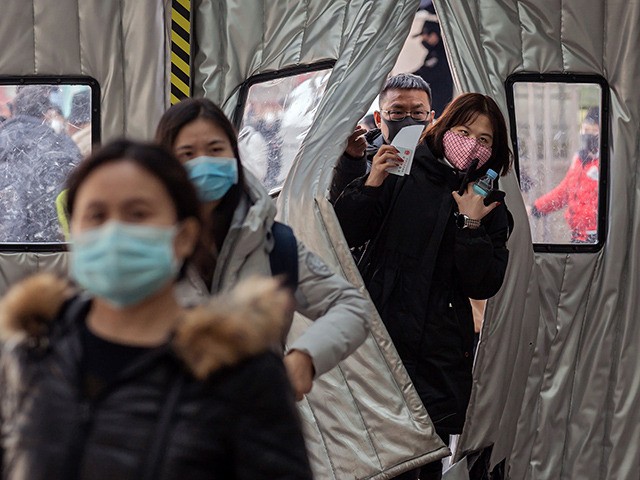The State Department on Thursday evening issued a “Do Not Travel” advisory for China due to the ongoing coronavirus outbreak that has killed over 200 people and spread to nearly 20 countries.
“Do not travel to China due to novel coronavirus first identified in Wuhan, China,” the advisory reads. “Those currently in China should consider departing using commercial means. The Department of State has requested that all non-essential U.S. government personnel defer travel to China in light of the novel coronavirus.”
The development comes as some Republican lawmakers have urged the Trump administration to bar travel from China while the country struggles to contain the viral illness.
This week, Sen. Tom Cotton (AR) asked top officials to implement a “target travel ban,” citing Beijing’s previous lack of transparency in combating outbreaks.
“Given the latest developments and the many unknowns about this virus, we ought to follow Benjamin Franklin’s maxim: an ounce of prevention is worth a pound of cure. America is blessed with world-leading researchers and laboratories on the cutting edge of medical science and epidemiology. Working in tandem with them, I’m confident our federal research agencies can develop a vaccine in record time,” the senator wrote in a letter to Secretary of State Mike Pompeo, HSS Secretary Alex Azar, and acting Homeland Security Director Chad Wolfe.
The move by the State Department comes hours after the World Health Organization (WHO) formally declared the virus an “international health emergency.”
China first informed WHO about cases of the new virus in late December. Eighteen other countries have since reported cases, as scientists race to understand how exactly the virus is spreading and how severe it is.
Experts say there is significant evidence the virus is spreading among people in China and have noted with concern instances in other countries — including the United States, France, Japan, Germany, Canada, South Korea and Vietnam — where there have also been isolated cases of human-to-human transmission.
Speaking to reporters in Geneva on Thursday, WHO Director-General Tedros Adhanom Ghebreyesus noted the worrisome spread of the virus between people outside China.
“The main reason for this declaration is not because of what is happening in China but because of what is happening in other countries,” he said. “Our greatest concern is the potential for this virus to spread to countries with weaker health systems which are ill-prepared to deal with it.”
“This declaration is not a vote of non-confidence in China,” he said. “On the contrary, WHO continues to have the confidence in China’s capacity to control the outbreak.”
A declaration of a global emergency typically brings greater money and resources, but may also prompt nervous governments to restrict travel and trade to affected countries. The announcement also imposes more disease reporting requirements on countries.
The Associated Press contributed to this report.

COMMENTS
Please let us know if you're having issues with commenting.